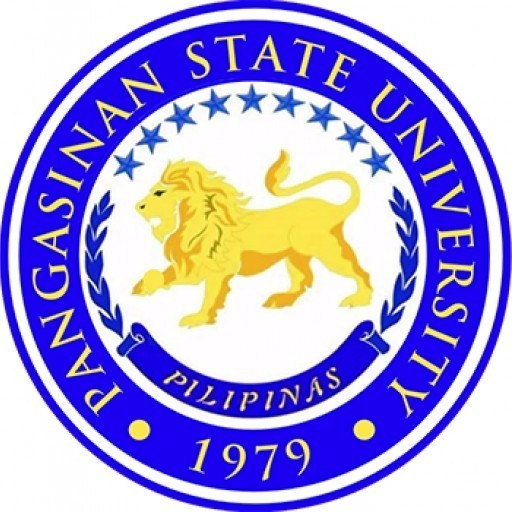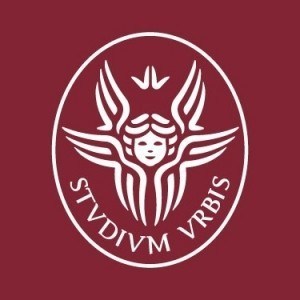Photos of university / #universityofgroningen
The Bachelor's degree in Biomedical Engineering at the University of Groningen offers a comprehensive, interdisciplinary program designed to prepare students for innovative careers in healthcare technology and medical device development. This programme combines principles from engineering, biology, and medicine to equip students with the skills necessary to design, develop, and analyze medical devices, diagnostic tools, and health monitoring systems. Throughout the course, students explore the functioning of biological systems, the application of engineering techniques to solve medical problems, and the integration of technological advancements into healthcare practices. The curriculum emphasizes practical skills through laboratory work, project-based learning, and internships, providing students with hands-on experience in biomedical innovation. Students also receive training in areas such as biomechanics, medical imaging, biomaterials, and signal processing, among others, enabling them to contribute to advancements in patient care, rehabilitation, and disease diagnosis. The programme fosters critical thinking, teamwork, and problem-solving abilities, essential for interdisciplinary collaboration in the biomedical field. Graduates of this programme are well-prepared for careers in research and development, medical device industry, healthcare organizations, or for further studies at the master's level. With a strong focus on innovation and societal impact, the Bachelor's in Biomedical Engineering at the University of Groningen aims to develop professionals who can address the complex challenges faced by modern medicine and contribute to technological progress in healthcare.
The Bachelor's degree program in Biomedical Engineering at the University of Groningen offers a comprehensive education designed to equip students with the essential knowledge and skills to innovate and advance healthcare technology. This program integrates principles from engineering, biology, and medicine to develop solutions that improve patient care and enhance medical diagnostics and treatment. Throughout the three-year course, students explore core topics such as biomechanics, medical imaging, biomaterials, signal processing, and biomedical instrumentation. The curriculum emphasizes both theoretical understanding and practical applications, with numerous laboratory sessions, project work, and internships that provide hands-on experience in real-world healthcare settings.
Students learn to analyze biological systems and design biomedical devices and systems, keeping ethics and regulatory aspects in mind. The program fosters problem-solving skills and encourages multidisciplinary collaboration, preparing students for careers in medical device development, healthcare technology research, and clinical engineering. In addition to technical coursework, students develop competencies in communication, teamwork, and problem analysis. The program is guided by faculty involved in cutting-edge research and collaborations with hospitals and medical technology companies, ensuring that students are exposed to the latest advancements and industry standards.
Graduates from the Biomedical Engineering program at Groningen are well-equipped to contribute to the evolving healthcare landscape, engaging in innovative technological solutions that benefit society. The program also provides a foundation for further studies, such as biomedical science or bioengineering master's degrees, offering opportunities for specialization and advanced research. Overall, this program combines academic rigor with practical relevance, preparing students to become forward-thinking biomedical engineers dedicated to improving health outcomes worldwide.
Admission requirements
MAKE SURE TO VISIT http://www.rug.nl/fwn/fmns-programme/admissions/msc/language-requirements for all the necessary information about required language tests.
Other requirements
- taaltoets cijfer MAKE SURE TO VISIT http://www.rug.nl/fwn/fmns-programme/admissions/msc/language-requirements for all the necessary information about required language tests.
- vooropleiding (ISPAC: vereiste vooropleiding) An academic Bachelor's degree in biomedical engineering, or in Life Science & Technology majoring in biomedical engineering. Applicants holding an academic Bachelor's degree in Physics, Applied Physics, etc, may be admitted on condition that any deficiencies related to biomedical engineering will be dealt with in the first year. This is merely an indication of required background knowledge. The admission board determines whether the specific contents of this/these course(s) meet the admission requirements of the master programme for which you applied.
- vooropleiding (ISPAC: vereiste vooropleiding) BSc-graad in Biomedische Wetenschappen; BSc-graad in Natuurkunde, Scheikunde, Electrotechniek of Werktuigbouwkunde met een specialisatie in BME is verplicht.
- aanvullend vak The Admissions Office will advise the Admissions Board on your application, after which the board will decide if you meet the admission requirements in terms of general level of previous education and specific background knowledge.
The Biomedical Engineering bachelor's and master's programs at the University of Groningen offer various financing options to support students throughout their studies. Tuition fees for international students are set annually by the university and vary depending on the student's nationality and residence status. For EU/EEA students, the tuition fee is generally lower compared to non-EU students. The university provides detailed transparency regarding tuition costs on its official website, enabling prospective students to plan their finances accordingly.
Students are encouraged to explore scholarships, grants, and funding opportunities to alleviate financial burdens. The University of Groningen offers several scholarships for international students, such as the Holland Scholarship and faculty-specific grants, which can significantly reduce tuition costs. Additionally, students may be eligible for government grants or loans depending on their country of residence. The university also recommends seeking external funding from governmental or private sources in the student's home country.
Part-time work is another pathway to finance studies; the university supports international students in finding part-time jobs on or near campus, subject to visa regulations and work restrictions. The university's Career Services and student associations provide resources and guidance for job searching. Additionally, students are advised to budget carefully for living expenses, including accommodation, food, insurance, and study materials. Groningen has a variety of student accommodations, with costs varying by location and type, which should be factored into the overall financial plan.
Students are also encouraged to set up a personal financial plan at the start of their studies, considering all potential expenses and funding sources. The university's financial aid office offers guidance on managing finances, applying for scholarships, and understanding tuition fee policies. For international students, it is essential to account for additional costs such as visa application fees, health insurance, and travel. Overall, the University of Groningen strives to make education accessible by providing ample funding information and support to help students finance their Biomedical Engineering studies effectively.
The Bachelor's degree in Biomedical Engineering at the University of Groningen is a comprehensive program designed to prepare students for a career at the intersection of engineering, biology, and medicine. The program aims to equip students with the necessary technical and scientific knowledge to develop innovative solutions for healthcare challenges. Students gain a solid foundation in areas such as biomechanics, biomaterials, medical imaging, and systems biology, combined with practical skills in designing, testing, and implementing medical devices and technologies. The curriculum includes theoretical coursework, laboratory exercises, and project-based learning, often emphasizing real-world applications and interdisciplinary collaboration. The program also emphasizes the importance of understanding human physiology and pathology to create effective biomedical devices and therapies. Students are encouraged to develop problem-solving skills, creativity, and the ability to work in multidisciplinary teams, reflecting the collaborative nature of healthcare innovation. Throughout their studies, students have access to modern laboratories and facilities where they can conduct experimental research and prototype development. The program prepares graduates for diverse careers in medical device industry, research institutes, hospitals, and healthcare technology companies. Additionally, the degree lays a foundation for further studies in specialized master's programs in biomedical sciences, medical technology, or related fields. The University of Groningen emphasizes sustainability and societal relevance in its education approach, encouraging students to consider ethical and social implications of biomedical innovations. The program normally takes three years to complete and is taught in English, attracting both Dutch and international students. Overall, the Biomedical Engineering bachelor’s program at the University of Groningen combines rigorous scientific training with practical engineering skills to foster innovation in healthcare and improve patient outcomes worldwide.








